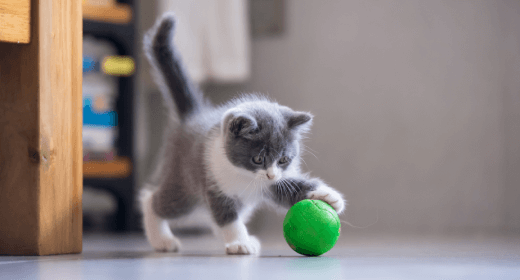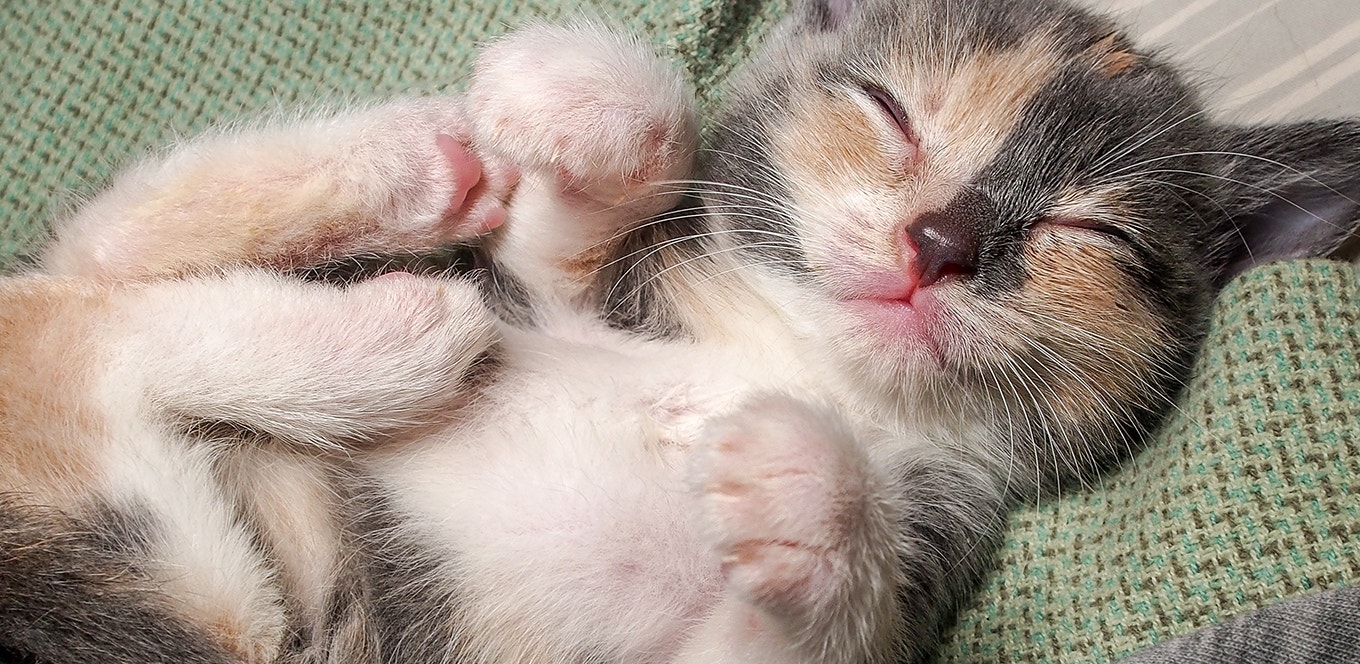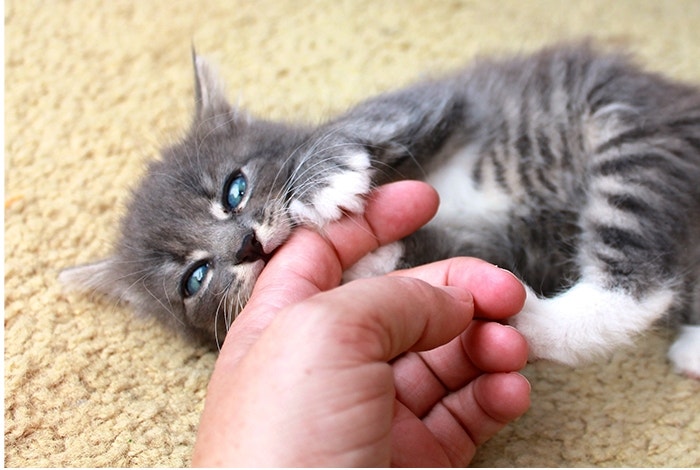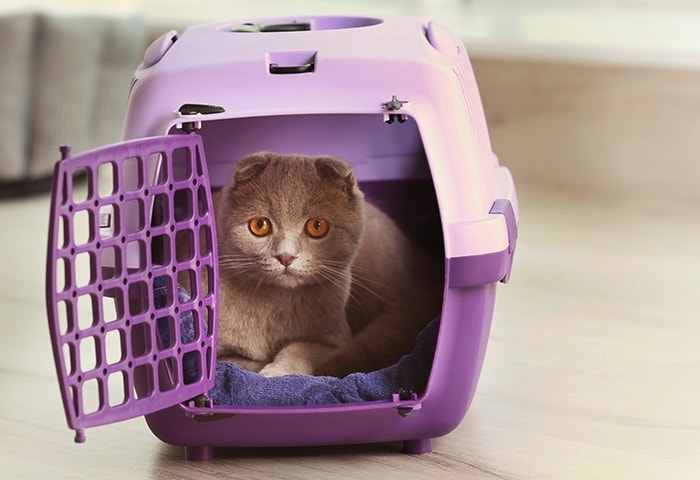

Aging pets may need special senior cat food, such as IAMS™ ProActive Health™ Senior Plus.
Mature cats need the same kinds of nutrients as younger adult cats, but as their metabolism slows, the quantities of those nutrients and the ways in which they are provided may need to change. Each cat is different, so ask your veterinarian for dietary recommendations based on your cat's physical condition.


Your kitten is one of a kind, not to mention adorable. But training your li’l baby comes with some basic guidelines. Scroll on for a handful of our favorite kitten training tips.
Introduce your new kitten to their litter box as soon as they get home. Then always set your cat in their box right after meals and as soon as they wake up from naps.
And don’t forget to reward your kitten with a treat, toy or some extra love after they use it.
Kitty, meet litter.
Litter, meet kitty.
When Kitty forgets their manners and bites you or shows their aggressive side, say “ow” or “no” clearly and sternly.
Then slowly remove your hand — or other body part — from their razor-sharp clutches. Pick up your kitten, place them away from you, walk away and ignore them.
You can also redirect them to a feather wand or another toy or activity if you want. But that’s your call.
Ouch!
That’s my hand,
not a treat, tiny cat.
By giving your little feline lots of sturdy scratching posts throughout your house, especially where they like to hang out, you can save your favorite furniture from unwanted claw marks and damage.
Oh, and be sure to trim your kitten’s nails regularly.
Say it with me:
Sofas are NOT
scratching posts.
Teach your kitten that their cat carrier is a safe, comfortable place to chillax and feel protected.
Trust us, by making a carrier part of your fuzzball’s daily life, road trips and vet visits will be easier and safer for years to come.
Cozy up,
Buttercup.
It's midnight. Bring on the zoomies, furry one.
(Actually, please don’t.)
Want to stop your kitten from bouncing off the walls while you’re supposed to be deep in slumber land? Try these tips.
Have a long play session later in the evening.
Feed your feline a big meal of delicious, nutritious Opens a new windowIAMS™ Healthy Kitten or PERFECT PORTIONS™
Spend 15 minutes of purr-worthy snuggle time before you hit the hay.
Yep, it’s true! One of our favorite Opens a new windowstudies from the University of South Australia proved it.
To help train your kitten, pick the word that best describes them:
These anxious felines tend to run away when the doorbell rings and are fearful of new situations.
The key to training a skittish kitty? Practice lots of patience and never force them to face their fears, like meeting your house guests after they’ve already runaway and hidden.
Some call them nosy, but we call them fearless. Outgoing kitties are curious and adventurous. They love to explore and get into everything — and they sometimes act naughty because they’re bored.
One of the tricks to training an outgoing kitten is to give them lots of toys and actively play with them. It stimulates their mind and helps burn off energy.
“Bossy” best describes these kitties. They bully other cats (and even other pets) and hog things like food bowls, toys and litter boxes.
If your kitten fits this category, be consistently firm and make sure you play with them regularly so they have less energy to be aggressive.
You might also want to make sure your little CEO (Cat Executive Officer) has their own food bowl, water bowl and litter box.
Two words describe these felines: impulsive and erratic. Their behavior and moods are unpredictable, even if they’ve encountered the same situation before.
When training, never raise your voice — it’ll just ramp up your kitty’s nerves and make them more erratic.
Also, be sure to stick to a consistent daily schedule for feeding and playtime so your little fuzzball knows what to expect and doesn’t get stressed out.
This personality is every cat lover’s dream.
These sweeties can usually be found curling up against your shins, meowing loudly and purring away.
The key to training these kittens is to never yell and to socialize them early and often. That way, they’ll continue to be everyone’s best friend for life.
You had me at
meow, li’l feline.


